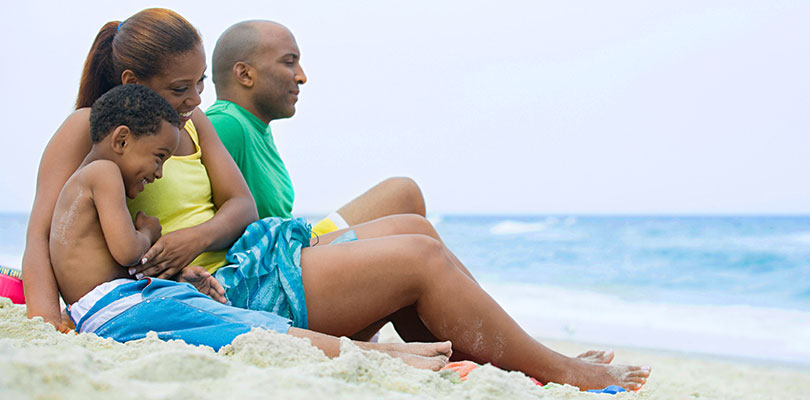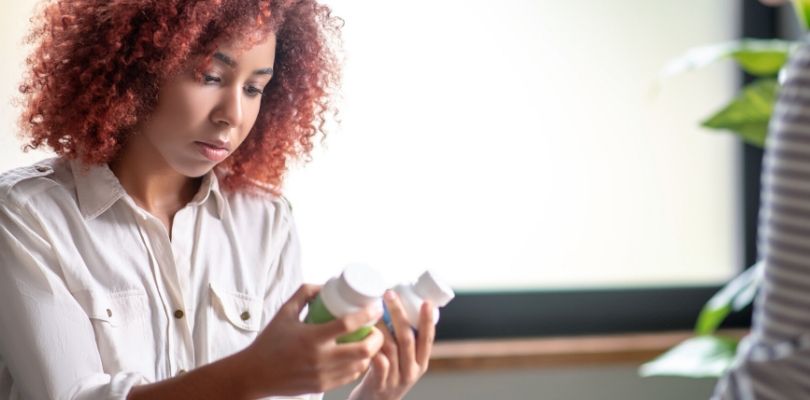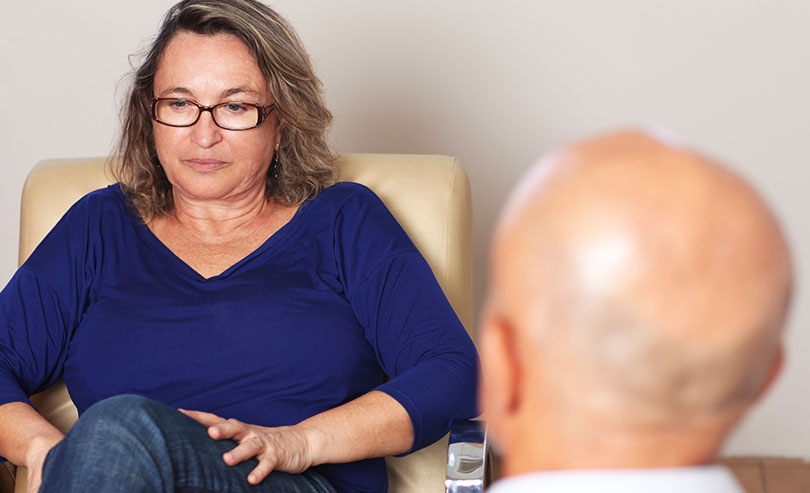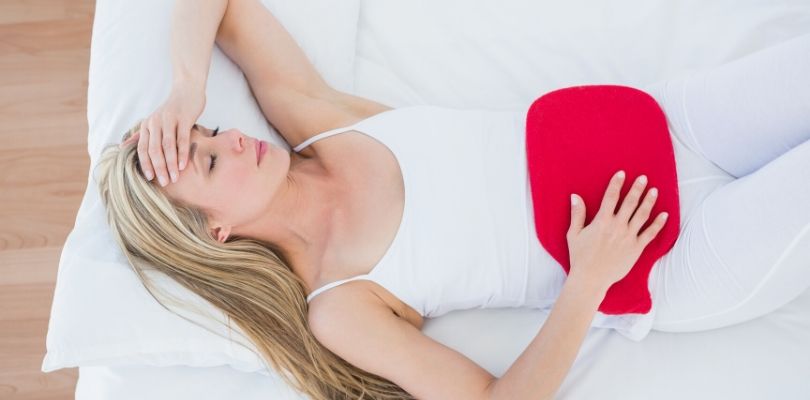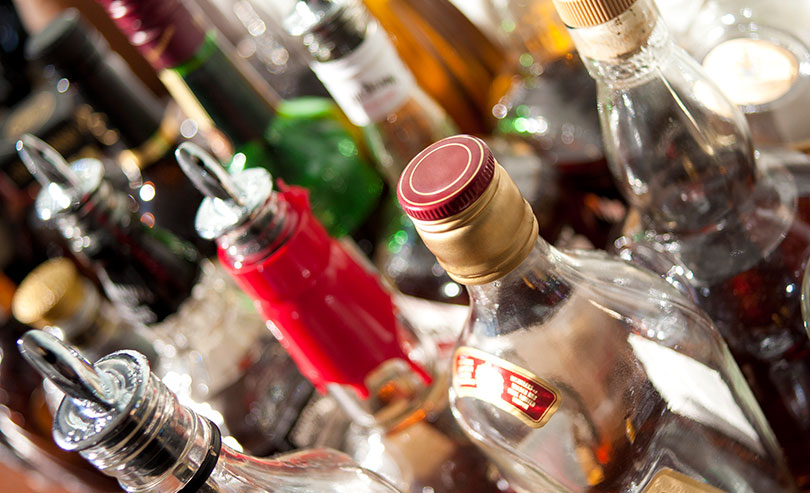Photo Credit: XiXinXing / iStockphoto.com
Tips for a Problem-Free Journey
Travel is a part of life, and whether your plans take you across the city or across the country, your overactive bladder (OAB) can make for a pretty terrible trip. New surroundings, uncertain timetables, and long stretches on the road can combine to put a lot of stress on your bladder, and that will make symptoms even more unpredictable.
OAB will likely complicate your travel preparations a bit, but you’ll be happy you took the time to plan well and prepare for hiccups along the way. It’s important to stay optimistic — after all, there’s no reason to let your OAB dictate your trip — but realistic expectations can be immensely helpful when it comes to staying one step ahead of your bladder issues.
Strengthen Your Body Before Your Trip
Bladder training is an important part of OAB management, but it doesn’t happen overnight. It’s best to give yourself at least a few weeks — but preferably longer — to get the hang of the exercises and build up a good base of muscle.
There are a few techniques to include:
- Time voiding. Rather than let your bladder dictate when you go, look to the clock for your cue. Find the right frequency for you — once per hour works for many people — and go at that time no matter what. It can feel a bit inconvenient at first, but emptying your bladder often means that urgency and chances of leaks will decrease.
- Kegels. This is the best way to strengthen the muscles around your bladder (which are crucial for allowing urine to pass, and stopping the flow). You should be practicing these pelvic floor contractions several times a day; if you’re not sure how to isolate the correct muscles, it’s time to talk to your doctor or physiotherapist to get a bit of guidance.
- Freeze and squeeze. When you get a strong urge to run to the toilet, sit and squeeze your pelvic muscles instead. Stay calm, focus on the feeling in your bladder, and contract your surrounding muscles a few times to lessen the urgency and give you time to get to the bathroom.
In general, a strong, fit body will function better in a variety of ways, so make sure you’re getting enough exercise. Aim for some heart-pumping aerobic exercise most days, and if strenuous movements tend to cause leaks, look to low-impact (but challenging) activities. Flow yoga, brisk walking or cycling can be more comfortable than running and other bouncy movements.
Pack the Right Medication
If lifestyle changes aren’t doing the trick, bladder relaxants can be good insurance against OAB problems while you’re on the road. If your doctor decides these drugs are right for you and you try them out, it’s a good idea to start them as soon as possible for a few good reasons:
- Medication affects everyone differently. Many people see improvement with bladder medication, but some don’t. Don’t wait to find out which camp you fall into, especially since it’s more difficult to deal with inadequate results or side effects when you’re away from home.
- Bladder drugs take time. Like a lot of medication, these types of drugs take time to kick in, so don’t expect to see results right away. Doctors suggest starting the medication at least two weeks before you plan to leave, to give the drug time to rack its peak efficacy.
- You may need a complementary medication. Most drugs have some chance of side effects, and bladder relaxants are no different. Constipation is one of the most commonly reported side effect, and that can definitely make your journey more miserable. Just in case, pack a stool softener to take if you need it, and make sure to stay hydrated.
If you’re going to be away for a while, get a back-up prescription is case you need a refill. If you’ll be flying to your destination, always remember to pack your medication and prescription in your carry-on luggage.
Tips to Stay Clean and Dry on Your Journey
When you’re away from the comfort and familiarity of your own bathroom, it’s natural to become a bit anxious — which can make bladder problems even worse. Again, preparation is the key to avoiding embarrassing episodes, and that means being proactive and making smart travel choices.
If you have overactive baldder syndrome, taking antidepressants can help. Antidepressants for OAB have been proven to lessen symptoms. Find out more here.
Keep an Emergency Kit Close at Hand
You certainly hope you’ll never need it, but it’s better to be safe than sorry. Pack a bag with extra underwear and an extra change of pants (note that dark colors and airy fabrics hide little leaks better). Consider using absorbent pads to catch any leaks, and in case of an accident, a couple of sealable plastic bags will make for discreet disposal (or storage until you can find a washing machine). Finally, you might want to use a barrier cream on your groin area to prevent any wetness from irritating your skin.
Look up Rest Stops Before You Hit the Road
The first task on your to-do list should be to scout out the facilities en route, so you know exactly what to expect. The Sit or Squat app makes it simple to pinpoint bathrooms along any route in the country (and beyond), plus they have reviews on the cleanliness and quality of the facilities!
Consider a Better Mode of Travel
When you have OAB, traveling by train is safer than traveling by car. Restrooms can be few and far between when you’re on the road, but if there’s one in the next train car (or at the back of the bus), it will ease your mind and save you in case of a potentially embarrassing emergency.
However and wherever you’ll be traveling, be sure you use the washroom right before you leave. Even if you don’t really have to go, the less that’s in your bladder when you hit the road, the longer you’ll be able to hold out for a bathroom.
Eat Well for a Happy Bladder
As you’ve likely heard, what and how you eat and drink can weigh heavily on your bladder. Seemingly harmless dishes can send you running to the bathroom, and certain beverages can set the stage for leaks.
Boring Is Better
The more rich, indulgent and exotic the dishes you eat are, the more likely your bladder will respond poorly.
Sticking to more neutral food might seem like a big sacrifice, especially at a special event, but it’s much better for your bladder. Luckily, you don’t have to throw away any and all flavor: while spicy ingredients are bladder irritants, most herbs are tasty as they are gentle on your system.
Monitor Liquids
Fight the temptation to completely cut out your beverages, since that will leave you with (very irritating) concentrated urine. Instead, space out drinks, and be sure you’re hydrating consciously but continuously.
Sipping at regular intervals is the best way to ensure you get enough liquid without experiencing a strong urge to go. A reusable water bottle with clear volume markings along the side will remind you how much (or how little) you’ve already taken in — a big help when schedules get frantic.
Lean on Loved Ones
OAB is not the easiest thing to discuss; if you’d rather just keep your bladder problem to yourself, you’re certainly not alone. But while discretion is perfectly understandable, it may not be the most prudent plan.
Even with the best planning, excellent prep work, and an optimistic attitude, accidents can happen. The very best thing you can do is keep calm when things go wrong, and it’s easier to do that when the people with you know that you struggle with OAB.
If you give your travel companions a head’s up before you depart, they’ll take it seriously when you say you have to go right now, and they can help advocate for you in uneasy situations. People are quite willing to be more flexible and lend a hand when needed, especially if they know it’s due to a health issue that’s not easy to control.
